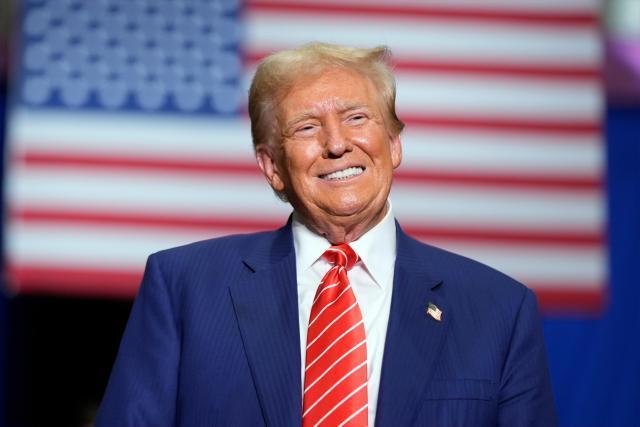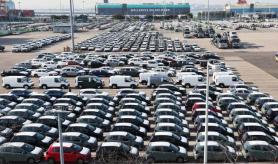
The former president has floated the idea of universal tariffs of 10 to 20 percent on goods from all other countries, and a 60 percent punitive tariff on Chinese imports. Former Commerce Secretary Wilbur Ross has recently warned his policies could be “catastrophic,” potentially inflicting nearly US$1 trillion in damage on global trade.
The stakes are high for South Korea, which relies heavily on both countries for its crucial electronics, semiconductor and automotive exports.
Korea’s trade surplus with the United States hit $44.4 billion in 2023 and is on track to surpass the record this year, with a $39.9 billion surplus between January and September.
South Korea became the U.S.’s eighth-largest trade surplus partner in 2024, up from 14th place in 2021.
Experts are concerned the imbalance could make Korea an early target for Trump's aggressive trade policies.
“No matter how much Korea invests in the U.S. or contributes to employment, Trump is expected to focus only on the over $40 billion trade deficit that the U.S. has with Korea,” said Park Tae-ho, an international trade expert at law firm Lee & Ko.
“He may also try to alter the free trade agreement with South Korea, not viewing it as a tariff-exempt country.”
If Trump's protectionism triggers a worldwide trade war, South Korea could see its exports decline by up to $44.8 billion, with real gross domestic product dropping by 0.29 to 0.69 percent, according to the Korea Institute for International Economic Policy (KIEP).
The potential intensification of U.S.-China decoupling through his promised punitive tariffs and export controls on strategic industries could further harm South Korea.
For the country, which supplies many intermediate goods to Chinese manufacturers, it could disrupt vital supply chains, particularly in its crucial semiconductor industry.
The Bank of Korea said in August South Korea's China-linked production could decrease by more than 6 percent under such policies.
KIEP estimates a full-scale U.S.-China decoupling could reduce South Korean economic welfare by up to 1.37 percent.
"If the U.S. authorities impose additional tariffs on countries to improve trade balances, it could act as a barrier for Korean companies operating in those countries when exporting to the U.S. market,” the Korea Institute for Industrial Economics and Trade (KIET) said in a report.
“In particular, if Korean export products to the U.S. use raw materials and intermediate goods from China, they are likely to become subject to such tariffs.”
Seoul officials have promised to step up policy coordination with the next U.S. administration while maintaining strong bilateral ties.
"We're activating various high-level channels to strengthen industrial and trade cooperation with the U.S.," South Korean Trade Minister Ahn Duk-geun said during a recent forum in Seoul.
Some experts suggest South Korea look beyond bilateral solutions.
“South Korea should work in solidarity and collaboration with other middle-power economies” to prevent the expansion of supply chain fragmentation and maintain stable trading environments, KIEP advised.
The uncertainty surrounding Trump’s policy approach has already begun affecting markets.
South Korea's KOSPI index fell 0.5 percent Wednesday on news of Trump’s strong showing while the won-dollar exchange rate exceeded 1,400 won for the first time in seven months.
Copyright ⓒ Aju Press All rights reserved.




